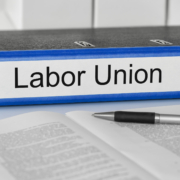The Role of a Labor Consultant in Preventing Unionization
A labor consultant plays an important role in helping businesses maintain positive employee relations and reduce the risk of unionization. By focusing on communication, education, and workplace culture, these professionals provide guidance that can prevent union organizing efforts while ensuring employees feel valued and heard.
Understanding the Role of a Labor Consultant
A labor consultant works directly with business owners and managers to create strategies that address employee concerns and improve overall workplace satisfaction. Their primary goal is to help businesses foster an environment where employees are less inclined to seek union representation. By identifying potential issues before they escalate, a labor consultant can help companies strengthen their internal relationships and reduce the likelihood of union activity.
Identifying Vulnerabilities in Workplace Culture
A labor consultant starts by assessing the company’s current environment. This process may include speaking with employees, evaluating communication practices, and identifying areas where employees may feel dissatisfied. Common concerns often include inconsistent policies, lack of managerial support, or issues related to wages and benefits. Once these vulnerabilities are identified, a labor consultant develops customized strategies to address those concerns directly.
By helping companies improve communication and resolve workplace frustrations, employees are more likely to feel their concerns are heard without turning to outside representation.
Employee Education and Awareness
Labor consultants are often engaged to educate employees about what union membership entails. This includes discussing union dues, contract negotiations, and the limitations unions may place on workplace flexibility. Providing employees with clear and factual information ensures they can make informed decisions about union involvement.
Many employees are unaware of the long-term financial obligations associated with union membership. A labor consultant can explain these factors in a way that promotes transparency while encouraging open communication between employees and management.
Manager and Supervisor Training
One of the most effective tools for preventing unionization is ensuring managers and supervisors understand how to build stronger relationships with employees. Labor consultants often conduct training sessions that focus on improving leadership skills, conflict resolution, and effective communication strategies.
By equipping managers with the tools they need to engage with employees, businesses can create an environment where employees feel supported and valued. This proactive approach can reduce employee frustrations that may otherwise lead to union activity.
Creating Proactive Policies and Procedures
A labor consultant also helps businesses develop proactive policies that promote fairness and consistency in the workplace. Clear policies on wages, promotions, dispute resolution, and disciplinary action can prevent misunderstandings that may lead to dissatisfaction. When employees know what to expect, they are less likely to seek union involvement as a way to resolve concerns.
Responding to Union Organizing Efforts
If union organizing activity has already started, a labor consultant can guide businesses in responding lawfully and effectively. While employers have the right to communicate with employees about unionization, certain actions must follow strict legal guidelines. A labor consultant ensures the company’s responses are appropriate and comply with labor laws while still addressing employee concerns.
This approach allows employers to share accurate information about union membership while emphasizing the benefits of resolving issues internally.
Encouraging Open Communication
The foundation of union avoidance is maintaining strong communication between management and employees. Labor consultants help companies implement regular feedback systems such as employee surveys, open-door policies, and team meetings that encourage employees to voice their concerns directly.
When employees feel their voices are heard, they are far less likely to seek outside representation.
Call Labor Advisors LLC For A Consultation
A labor consultant can play an important role in preventing unionization by helping businesses build stronger employee relationships, improve communication, and develop proactive workplace policies. By addressing employee concerns early and creating a positive workplace culture, businesses can reduce the risk of union organizing efforts while strengthening employee loyalty.
For business owners seeking guidance on protecting their workplace, consulting with experienced labor advisors is a valuable step toward maintaining a positive and productive workforce. For more information on proactive labor relations strategies, contact Labor Advisors at 1-833-4-LABOR-4.







